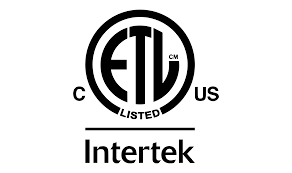In the world of electric vehicle (EV) chargers, safety and reliability are paramount. As such, industry standards and certifications play a critical role in ensuring that EV chargers meet certain safety requirements. Two of the most common certifications in North America are the UL and ETL certifications. In this article, we’ll explore the similarities and differences between these two certifications and explain why they are important for EV charger manufacturers like Sichuan Weiyu Electric Co., Ltd.
What are UL and ETL Certifications?
Underwriters Laboratories (UL) and Electrical Testing Laboratories (ETL) are both Nationally Recognized Testing Laboratories (NRTLs) that test and certify electrical products for safety. NRTLs are independent organizations recognized by the Occupational Safety and Health Administration (OSHA) that conduct product testing and certification to ensure that the products meet certain safety standards.
UL is a global safety certification company that tests and certifies a wide range of products, including EV chargers. ETL, on the other hand, is a product testing and certification organization that is part of the Intertek Group, a multinational assurance, inspection, testing, and certification company. Both UL and ETL certifications are widely recognized and accepted in North America and around the world.
What are the Differences between UL and ETL Certifications?
While both UL and ETL certifications are recognized as proof of product safety, there are some differences between the two certifications. One of the main differences is in the testing process. UL has its own testing facilities and conducts all of its testing in-house. ETL, on the other hand, contracts out its testing to independent testing labs. This means that ETL-certified products may have been tested at a variety of different labs, while UL-certified products have been tested at UL facilities.
Another difference between UL and ETL certifications is the level of testing required. UL has more stringent requirements than ETL for some product categories, but not all. For example, UL requires more extensive testing for products that are used in hazardous locations, such as in areas with flammable gases or dust. In contrast, ETL may require less testing for certain product categories, such as lighting fixtures.
Despite these differences, both UL and ETL certifications are recognized as valid proof of product safety by regulatory bodies and consumers alike. The choice of which certification to pursue often comes down to factors such as cost, testing requirements, and the specific needs of the product being certified.
Why are UL and ETL Certifications Important for EV Charger Manufacturers?
EV chargers are complex electrical products that require rigorous testing and certification to ensure their safety and reliability. Both UL and ETL certifications are important for EV charger manufacturers like Sichuan Weiyu Electric Co., Ltd. because they provide assurance to customers that our products have been independently tested and certified to meet certain safety standards.
In addition, having UL or ETL certification can also be a requirement for selling products in certain markets or to certain customers. For example, some municipalities or government agencies may require that EV chargers be UL or ETL certified before they can be installed in public spaces. Likewise, some commercial customers, such as property management companies, may require that products be UL or ETL certified before they will consider purchasing them.
By pursuing UL or ETL certification for our EV chargers, Sichuan Weiyu Electric Co., Ltd. is demonstrating our commitment to product safety and reliability. We understand that EV chargers are an important piece of infrastructure that must be dependable and safe for both the users and the environment.
Conclusion
UL and ETL certifications are important for any company that manufactures electrical products, including EV chargers. While there are some differences between these two certifications, both are recognized as valid proof of product safety and reliability. For EV charger manufacturers
Post time: Feb-22-2023


